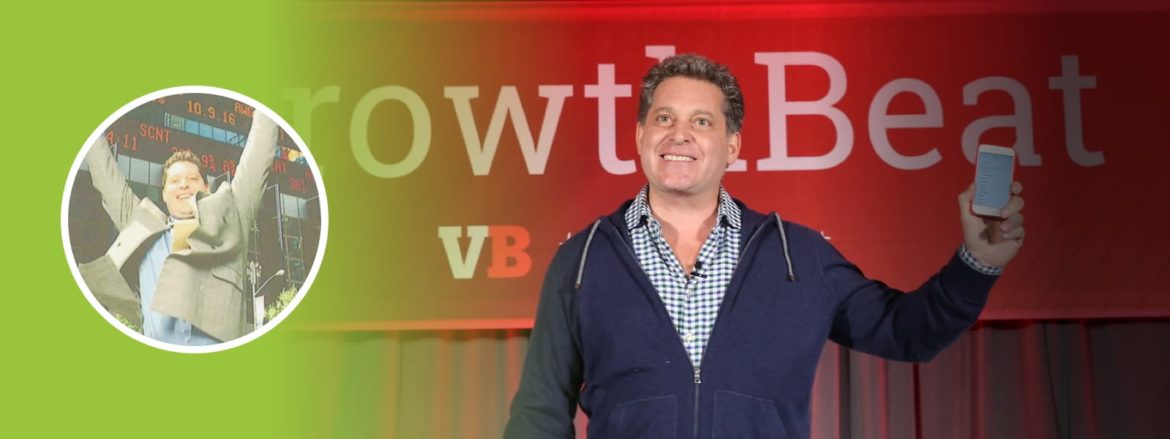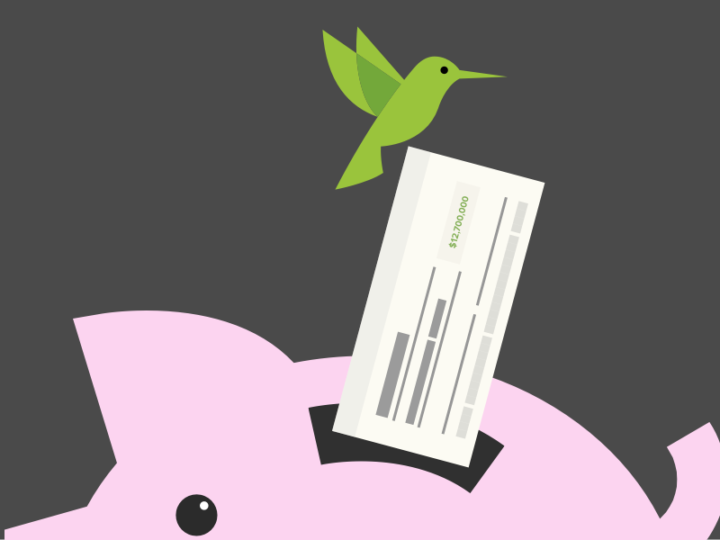
Eric Greenberg, a former billionaire, is the loudest rich guy in any room. With a salesman’s pushing patter, he speaks and speaks and speaks, raising his emphasis, until his voice hits a crescendo — and then, backing away from his own force, he quiets a little before starting again. You can’t get in a word edgewise, and most of the time his patter is so tight and so compelling that you don’t want to.
Greenberg, above all, sells himself. The entrepreneur is sitting in the Core Club, a clubhouse for the conspicuously rich in New York that has six floors and a $50,000 initiation fee that demands another $15,000 annually. The decor is understated, which, even in a casual suit, he is not. His intensity is overwhelming.
He’s telling me about how he was an Internet billionaire, and then he wasn’t. He wants to be one again, and the world has changed and it’s much harder the second time.
Greenberg, 50, might not be a household name, but at one time he was among the most successful Internet entrepreneurs of the dot-com boom. He started two consulting firms that went public, pushing his personal net worth well above a billion dollars. The exuberance for the Internet era had reached public markets, sending the value of risky tech companies and the Nasdaq Composite Index of tech stocks soaring. Then he failed, he ballooned to 280 pounds, and he was sued by one of the most influential men in finance, William Koch, over a wine deal gone bad.
Now, years after having lost almost everything and stepping back from the startup scene, Greenberg is back, and not a moment too soon.
But he’s still trying. And Greenberg, 50, is in the same boat as brilliant people half his age —trying to hustle to the top of a tech world where money is flowing like water, where opportunity seems everywhere, but is still strangely elusive.
But he has one advantage: he’s seen it before. He’s won it and he’s lost it. And these other kids have no idea what’s coming.
‘Nobody made it out of my neighborhood’
As far as capitalists go, Greenberg is from another era — one in which you didn’t have smart professional parents who paid for lessons and pushed you to go to Harvard or MIT. He’s not from the generation where you impressed people by wearing a hoodie to work. He’s from the generation where you had to wear a suit to be taken seriously, to attract money to you, to get people to trust you.
Greenberg was born in Brooklyn and grew up in Las Vegas. It wasn’t a great neighborhood and his family wasn’t wealthy. His father was a salesman for Clairol, his mother worked as a cashier in a casino. The only Jewish person at his high school, he ended up friends with other outcasts, mostly minorities like him.
“It’s a God-blessing miracle for me, and it’s just… nobody made it out of my neighborhood,” he said.
Vegas had begun to grow rapidly during his childhood, but the money and people brought with them an intense seediness.
“Have you ever seen the movie ‘Casino?’” he asks. “You’re exposed to a lot at a young age.”
Greenberg is a survivor. He sold women’s shoes when he was 14. He kept that job for years, into high school and college. His parents didn’t have a lot of income to share.
“You wanna see where I grew up?” Greenberg says, pulling out his iPhone. He’s not going to his wallet or even to some Facebook photos; he has no mementos of the place and he doesn’t want one. Instead, he goes to Google Maps, pulling up a picture of a bland one-level ranch house. “The middle room was my bedroom.”

IMAGE: ERIC GREENBERG/GOOGLE MAPS
He gets my email and sends me a photo of the house, which he says is maybe worth $70,000 now.
Salesman by trade
Greenberg left home just after turning 17, heading to the University of Michigan. He’d only make it two years in Michigan before the recession of the early 1980s caused the university to raise tuition on out-of-state students. With few options, he landed at the University of Texas, which was still cheap at the time. He returned to selling shoes, the gig that helped him get out of Las Vegas.
His initial aspirations to be a lawyer were scuttled by the reality that his financial circumstance — living on student loans and still in a dead-end retail job to afford food — made grad school impossible.
Greenberg graduated UT in 1985 with a finance degree and a dream of being a banker. It was a bad investment at the time. The national savings and loan crisis hit Texas in slow motion throughout the 1980s, causing almost 1,600 banks to fail.
With banking out, Greenberg took the other well-traveled path to money: information consulting at Arthur Andersen. He didn’t know anything about computers. “I didn’t take a computer course in college. Not one.” But he knew how to learn, and he knew how to sell.
“That was what got me into technology,” he said.
Entrepreneur by circumstance
By the early 1990s he was a salesman at Gartner, calling companies and pitching them on technology that promised to transform their industry. Even cold calls were being warmly received. Greenberg, who could talk his way into anything. was making Wall Street-level money.
“I was making a half-million dollars in my 20s,” he said. “I had a good time.”
But he was still behind on technology. “I didn’t even have an email address,” he said. Gartner’s CEO didn’t care. He asked Greenberg to dig up more business among Internet companies, advising them on how to grow in a competitive new field. He met with people in Silicon Valley and worked with companies like AOL.
“I realized, holy cow, there’s gold in the fields,” he said. When Gartner tried to reassign him to another business, he refused.
“I resigned and told them I’m moving out west, I’m gonna get a job in the Internet.”
“I resigned and told them I’m moving out west, I’m gonna get a job in the Internet.”
He got plenty of interviews — head of sales at Yahoo, head of sales at Infoseek — but nothing panned out. Greenberg’s inability to get a job — first out of college as a banker, next as a salesman for an Internet company — would be the kind of bad break that ended up being good luck.
In the fall of 1995, Greenberg was walking around a conference with Yahoo co-founder Jerry Yang, whom he calls “a wonderful human being.” He saw a lot of executives who were curious about digitizing their businesses, but couldn’t speak fluent technology Nobody was helping bridge the gap between them and the burgeoning tech world. “There were no IT folks there.”
Greenberg, the former technoplebe, went home and wrote up the business plan for what would become Viant, one of the biggest and most successful web consulting firms of the dot-com era. In a few years, its client list included companies such as American Express, JP Morgan, Kinko’s and Radio Shack. He then left to found Scient, essentially the same company — with as much if not more success. That company would go public in May of 1999. Eric Greenberg had become a billionaire.
“It was a perfect storm,” he said. “There was no shortage of demand.”
Eric Greenberg was in the middle of the tech boom, and he loved it.

IMAGE: ERIC GREENBERG
Redemption story by nature
Like a lot of the current valuation of major companies, most of Greenberg’s worth was on paper. He owned a big chunk of Scient when it went public, and the shares climbed to more than $120 at one point.
He says his personal net worth at one time was around $1.4 billion. He lost 95% of it during the tech crash of 2000.
“Losing all that money was surreal. It was like an alternative reality. It caused a big psychological blow to me … It was up and down all so fast. Impossible to prepare for,” he wrote.
He didn’t give up right away, like many did in the post-crash diaspora. Greenberg kept plugging away.
Greenberg wasn’t entirely done with the tech and startup scene. He helped found a venture capital firm called 12 Entrepreneurship (for the number of digits in $100 billion), which faltered almost immediately. He still wasn’t done, founding Acumen Science, which published a journal on “the convergence of biology and technology.” He described it as “great…but not economically viable.”
His body was telegraphing his stress and the failures and the worry. He put on weight, ballooning up to 280 lbs. His health began to deteriorate. People wondered whether he would survive long enough to be an entrepreneur any more.
“One of my investors saw me and told me I could drop dead in 6 months, and implored me to shut the business down,” he said.
So he did.
Letting go of attachments
Greenberg stopped working and cut himself loose from the world he knew. He traveled and studied spirituality, getting in touch with his Jewish faith but also Buddhism and eastern philosophy. He also confronted some of the his personal issues, including parts of his childhood. It took around 7 years.
“I just had to really get peace with myself,” he said.
It worked. He dropped around 70lbs and his health improved. He began to eat healthy but found it hard to do, so he started a health food company called Beautifull, which is still in operation. In 2008, he co-wrote a book, an extended pep talk for young people. “Generation We: How Millennials are Taking Over and Changing the World.”
He dabbled in wine, and got sued for it. He got into legal scuffle with William Koch (one of the infamous Koch Brothers) over bottles of wine that Greenberg sold at auction. Koch said the wine was low quality and that he had been swindled. The case is still being appealed, and Greenberg declined to comment.
Greenberg was in a better place, but he still felt the need to push forward. He was worried about his sons, aged 14 and 10. He feels responsible for setting an example, one he didn’t get growing up.
“Just sitting around and not working, I think wasn’t the best role model example that I could provide,” he said.
By 2013, Greenberg was ready to get back into tech again.
Unpopped bubbles
Greenberg’s new venture is called Wrap. It’s a kind of Internet infrastructure that looks like a combination of Tumblr and Flipboard, and lets companies built their own mobile web pages that can live anywhere, including on social networks or messaging apps. Wraps can have a variety of features including ecommerce.
Earlier in 2015, the company raised $3.5 million in a Series A funding round, of which Greenberg put in $500,000 himself. Before that, he committed around $3 million to get the project started.
Greenberg thinks Wrap is the next big thing, but why risk it? If he’s happier and healthier, why come back now?
The simple answer is that there’s opportunity, the kind he saw in the first boom but came along a little too early.
“When the crash happened in 2000, it wasn’t a foregone conclusion that the entire world was going digital with the Internet.”
“The market cannot drop down to zero,” he says. “It’s not, because this is the economy now.”
Within 30 seconds of sitting down I’ve broached the idea that we’re in a new tech bubble. It appears I inadvertently stepped into something. He starts selling again, hard.
There’s one key difference in this market, Greenberg said, and it’s the amount of money that companies can still raise while private. He’s talking about companies like Slack ($340 million raised), Airbnb ($795 million), Snapchat ($848 million) and Uber ($5.9 billion).
“Where the valuations are extreme, is in category leaders and platform leaders,” he said. “A market cap means nothing. It’s a matter of how much cash you have in the bank. That’s why they’re raising immense amounts of cash with these valuations.”
The first time around, companies didn’t raise that kind of cash privately. Instead, they went public. This opened companies up to the wider market and risks like irrational public investment and hedge fund short sellers.
And when that popped, it did so in spectacular fashion. In the span of a couple years, the value of the Nasdaq declined by more than $5 trillion. Startups that had gone public without turning a profit or proving a business model couldn’t handle the market conditions and shut up shop. Even giants like Amazon and eBay suffered 90% or more declines in their stock prices, calling into serious question whether they would be able to survive.
There’s also the fact that the Internet has had another 15 years to mature. This is the kind of thinking mirrored by vaunted venture capital firm Andreessen Horowitz, which recently put out a presentation about the bubble discussion. Greenberg makes a similar point: the first time around not everybody and everything was online, but this time, they are.

IMAGE: ANDREESSEN HOROWITZ
This doesn’t mean we aren’t in for a little turbulence. The real risk, he notes, is to companies that aren’t doing anything particularly well, don’t have a cash reserve and are led by a founder that has little control of the company. He cites cloud storage company Box as an example, but warns it is still early days.
“The people that will get hurt by that are B-level companies that don’t have anything that they’re doing that’s really unique, and that don’t have a differentiation that they can articulate properly to the markets and customers for wide-scale adoption.
“I think we’re two innings into a nine-inning baseball game.”
The past seven years away have been good, he says, but his heart is still in the business.
“I feel ten years younger since I started doing this because I’m engaged,” he said. “I have this motive for doing this that’s bigger than anything I could describe with words.”
For a man who never seems at a loss for words, that’s saying something.




